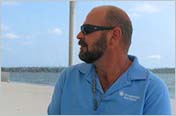Richard Wagner was the word as we rang in Week Three, from January 17 to 19, of New Jersey Symphony Orchestra’s (NJSO) Winter Festival. From “Lohengrin” to “Götterdämmerung,” with a soupçon of Franz Liszt for flair, the third week of the Winter Festival was a fitting finish with flourish like no other.
Following the 2020 Winter Festival theme of “In The Spotlight,” Wagner was the featured composer. Wagner’s genius includes some of the greatest and most memorable themes that range from lush to grand to sweeping, and how he reworks them for different moods and modes has inspired everything from Bugs Bunny mock opera to movie soundtracks, for that is the power and scope of his work. This finale was grand indeed.
The first act began with the Prelude to Act 1 of “Lohengrin,” the opera where a Duke’s daughter, unjustly accused of murder is championed by a knight who appears coming down the river on a barge towed by a swan. Prior to Walt Disney, was there ever anything more romantic? However, she must not ask his name or his origin, even though they fall in love and marry. This first taste of Wagner’s genius and this display of the magnitude of his vision is the full fruition of the Romantic style. Achingly beautiful with delicate orchestrations that whisper sotto voce promises draw us in to the end, where I found myself holding my breath for the final note. Next, we were treated to Simon Trpceski (terp-CHESS-kee), who is the classical version of a rock star in his native Macedonia. He gave us a dazzling rendition of Liszt’s Piano Concerto Number Two. Liszt was perhaps the foremost performer of his time and Trpceski flexes his technique. The orchestra opens the work and, when the piano appeared, they continued together as the movements flow into one another, with no breath or pause in between. The energy flowed from Trpceski’s fingers in a fluid organic manner, as his hands dance up and down the keyboard, sometimes with echoes in the string section. Alternating brooding passages with play, this is a major work of 19th century glory and Trpceski was born to play this music. Jonathan Spitz, principal cello of NJSO, was featured, as in Week One, where there was a solo passage that duets with the piano, which was almost like watching a drawing room flirtation from behind a fan. Then the oboe emerged, then the strings, then full stop by orchestra for a dramatic glissandissimo—is that a word?!—from the piano that was gossamer delicate in its sweep and beauty. Then, giving way to an almost martial passage punctuated by brass, Liszt gives us the full measure of the soloist, who plays with panache as well as monumental skill.
Once again, how do you follow a stellar first act? With a magnum opus by two artists–Lorin Maazel’s brilliant arrangement, Wagner’s “Ring Without Words,” wherein he condenses 15 hours of music into a fraction that includes the visceral excitement and brilliance of the whole, in a fraction of the time. If you ever wondered what kind of condition a conductor needs to be in both physically and mentally, this is the equivalent of a marathon–more than 60 minutes of constant and consistent focus and motion. Xian Zhang is masterful in every way, and as she guided the orchestra, as well as us in the audience, on this dramatic heroes’ quest, this performance was truly thrilling. Percussion began thrumming and continued for quite some time until you find your heart beating with its rhythm. This percussion gave way to strings that were almost like the awakening of the earth for a new day. The strings became faster and they swirled toward a gradual maelstrom of energy, and the orchestra acted as the tendrils of sunlight that gradually strengthens to awaken the world. And what a world, as we soon find out and this prologue is but a harbinger of what glory is to come. Music guided us through the story of Wotan and the Nibelungen. We heard the hammers of Alberich’s dwarf minions, as they fashioned the purloined, soon to be cursed gold. There are glimmers of what may be the melody most associated with Wagner, as first we heard the hooves of Brünnhilde and her warriors’ horses ride out to select fallen warriors for Valhalla–and when hoofbeats segued into the full-throated, full-bodied brass section exploding the heraldry and martial vigor of “The Ride of the Valkyries,” I had tears in my eyes. Throughout the arrangement, Maazel dedicated himself to using only Wagner’s notes. Maazel saw the scores of the “Ring” cycle as a code, and like any super sleuth, he rendered that code into something we could all enjoy. Through Maestra Xian Zhang, who deciphered the message for us, we got Brünnhilde’s torment, her rescue and star-crossed love with Siegfried right down to the Götterdämmerung, the twilight of the gods, in the finality of the Immolation Scene music, and only then do we see the power of three–Wagner’s epic work, Maazel’s brilliant arrangement, and the genius of Zhang, who took us from the Moldau to the Rhine, In The Spotlight.
What more is still in store? The new NJSO tradition of celebrating Lunar New Year continues on January 25! Get your seat now at
www.njsymphony.org. I’ll see you there!














